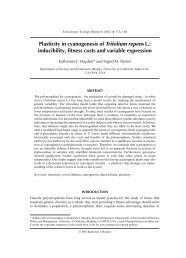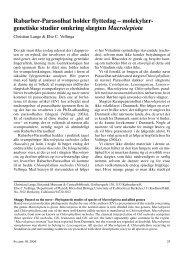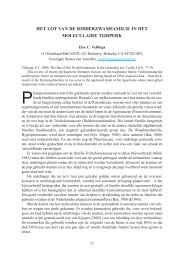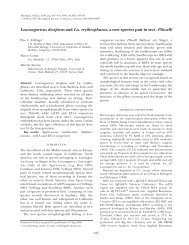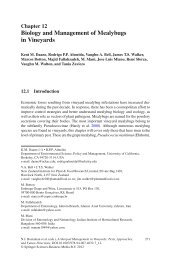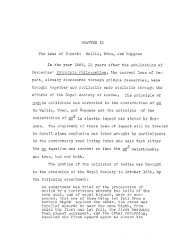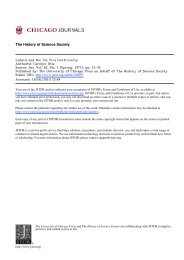2013-14 Undergraduate Student Handbook - College of Natural ...
2013-14 Undergraduate Student Handbook - College of Natural ...
2013-14 Undergraduate Student Handbook - College of Natural ...
Create successful ePaper yourself
Turn your PDF publications into a flip-book with our unique Google optimized e-Paper software.
Majors in the Social Sciences<br />
Environmental Economics and Policy (EEP) focuses on economics and<br />
the political institutions that affect the development and management <strong>of</strong> natural<br />
resources and the environment. It takes a problem-solving approach to issues<br />
involving renewable and fixed natural resources, and has a foundation in microeconomic<br />
theory and the economics <strong>of</strong> resources and the environment. The major<br />
also includes topics related to policy, domestic or international development, and<br />
law. The program is <strong>of</strong>fered in both the <strong>College</strong> <strong>of</strong> <strong>Natural</strong> Resources (B.S.) and the<br />
<strong>College</strong> <strong>of</strong> Letters and Science (B.A.). Offered by the Department <strong>of</strong> Agricultural<br />
and Resource Economics (ARE).<br />
Society and Environment (S&E) introduces students to the main approaches<br />
and theory for environmental social sciences, including how social science tools can<br />
be applied to environmental problems, and how social science theories contribute<br />
to understanding environmental problems. <strong>Student</strong>s are exposed to three areas<br />
<strong>of</strong> concentration, and choose to focus on one: 1) U.S. Environmental Policy and<br />
Management, 2) Global Environmental Politics, or 3) Justice and Sustainability.<br />
Offered by the Department <strong>of</strong> Environmental Science, Policy, and Management<br />
(ESPM).<br />
Choosing a Major<br />
If you are a freshman, you are not required to be in a major program during<br />
your first two years in CNR. You must declare a major by the end <strong>of</strong> your fourth<br />
semester <strong>of</strong> enrollment at UC Berkeley. Failure to declare a major by the time you<br />
reach junior status will result in your registration being blocked, and you will not<br />
be able to enroll in any courses until you declare.<br />
Your major should reflect your interests and your career goals. Both may change<br />
during your first years <strong>of</strong> college, and you need not feel locked into your initial<br />
choice <strong>of</strong> major. Many major programs have similar lower division requirements,<br />
and changing majors within CNR during the first two years generally creates no<br />
difficulties.<br />
There is plenty <strong>of</strong> information on the undergraduate majors <strong>of</strong>fered in CNR<br />
available in the <strong>Student</strong> Resource Center, and on the CNR website at http://cnr.<br />
berkeley.edu/site/choosing_major.php. You can also make an appointment with<br />
any <strong>of</strong> the undergraduate staff advisors to find out more about a particular major.<br />
Declaring a Major<br />
On pages 24-25, you will find the minimum requirements needed to declare a major<br />
in CNR. <strong>Student</strong>s are also expected to follow these guidelines:<br />
• Current UC Berkeley students who entered as freshmen are expected to be<br />
able to graduate in a total <strong>of</strong> 8 semesters (summers excluded). Exceptions are<br />
rarely granted. <strong>Student</strong>s should be progressing in major requirements each<br />
semester.<br />
• All major requirements must be taken for a letter grade.<br />
• Both halves <strong>of</strong> Reading and Composition requirement must be completed by<br />
the end <strong>of</strong> the 4th semester.<br />
“ I chose<br />
Molecular<br />
Toxicology because<br />
it’s an extremely<br />
unique major<br />
that’s not <strong>of</strong>fered<br />
by many other<br />
universities. It’s<br />
more applicable<br />
and a lot more<br />
useful than basic<br />
sciences that<br />
are just focused<br />
on biology or<br />
chemistry. I like<br />
how Molecular<br />
Toxicology focuses<br />
on how you can use<br />
it in the industry.”<br />
--Susie Zhang ‘<strong>14</strong><br />
Molecular Toxicology<br />
21




